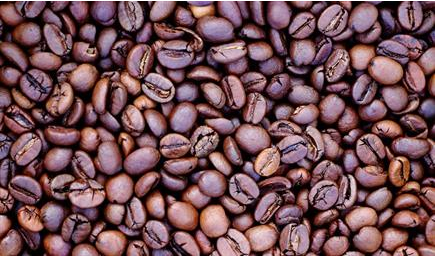Most of us kick-start our day with tea or coffee, and whether it’s just habit or a conscious decision, the caffeine hit can help to make us feel awake and ready for the day. However, caffeine can be found in more than just tea and coffee, and we can often be consuming more than we are aware of.
To make more informed choices about the your caffeine intake, find out which foods and drinks contain it, and how caffeine can impact your health:
- Tea, coffee, sodas, energy drinks and snack bars, chocolate and even prescription and over-the-counter medicines can all contain caffeine. Tea, coffee and chocolate-flavored foods are also likely to have caffeine in them.
- The amount of caffeine in a food item or beverage can vary dramatically. Everything from the coffee bean, tea leaf or cacao pod that the caffeine derives from, to the serving size, brand and brewing time can impact the quantity of caffeine.
- Health experts say that up to 400mg of caffeine per day is safe for the majority of healthy adults. For most people, consuming around 2-4 cups of coffee daily (averaging 100mg of caffeine per cup of brewed coffee) will not cause any ill effects. It’s recommended to spread your caffeine intake throughout the day and to consume it in moderate doses.
- The caffeine content of beverages can vary significantly - be particularly mindful of energy drinks, where the caffeine content can range from 40mg to 250mg per 230ml serving.
- With chocolate, the darker it is, the higher the caffeine content. White chocolate, however, contains no caffeine.
- Everyone metabolizes caffeine differently and has a different sensitivity to it. This means that some people will be able to drink several cups of a caffeinated beverage without any problems, while for others a single cup may be all it takes to make them feel jittery.
- Your body responds in many different ways to caffeine. It can act as a stimulant, making you feel more alert. It can reduce fatigue and boost your concentration or focus. Caffeine may also help if you are constipated, by stimulating the intestines and colon.
- Cleveland Clinic Abu Dhabi ‘s Medical Subspecialties Associate Staff Physician, Dr. Iyaad Hasan says, “Consuming too much caffeine, i.e. over 600mg per day, can leave some people feeling jittery, nervous or anxious. It may also lead to headaches, dehydration, diarrhea, sleep deprivation, a rapid heart rate and increased blood pressure.“
How to cut back on your caffeine intake
If you’ve been experiencing any of the negative symptoms above, then you should speak with your doctor to check if caffeine may be a contributing factor. When it comes to cutting back, try following these recommendations:
- Be aware of how much caffeine you’re consuming. Check the ingredients label or, if you’re in a café or restaurant, ask your server to find out the amount of caffeine in your beverage or food item.
- Reduce your intake gradually. Cutting caffeine immediately and completely from your diet could lead to withdrawal symptoms such as headaches, nausea and fatigue. It’s best to reduce slowly to avoid these.
- Start introducing decaffeinated options. This could mean making your coffee with half caffeinated coffee and half decaf coffee, or substituting a caffeinated beverage for a decaf one.
- Increase your water intake. Drinking more water will help you to stay hydrated and remove caffeine from your body.
- Improve your sleeping habits. If caffeine is your way to wake up in the morning, focusing on ways of getting a better night’s sleep may be beneficial.

